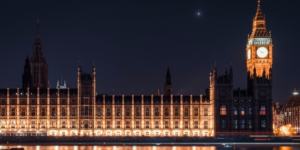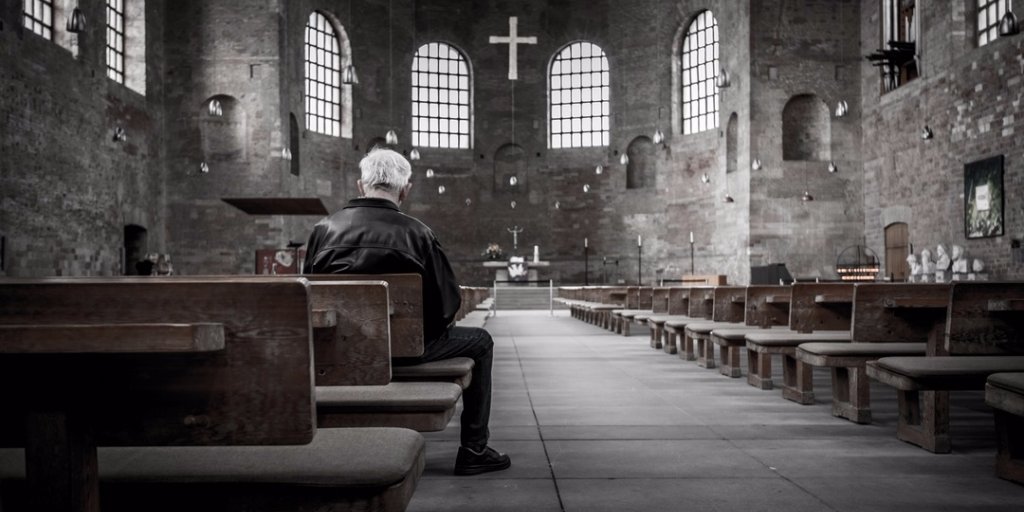Fundamentalist religious schools: Is your child at risk?
Publicly funded religious schools, or ‘faith schools’, currently make up around a third of our 20,000 state funded schools in the British education system. Due to funding being made available, lack of regulation and encouragement by successive UK governments, we have seen a sharp rise in popularity of Christian, Muslim and Jewish faith schools in the UK. Despite DBS checks being carried out by most schools, regulators have found disturbing practices and teaching methods that are potentially putting children at risk. The presence, continued popularity and wide-spread acceptance of these schools and their large catchment areas has severely limited choice for parents who may not want a religious education for their children or do not share the faith of their local faith school, leaving them with no choice but to send their child there.
British Prime Minister Theresa May’s first major policy statement after taking power was regarding a change in legislation to allow for 100% selection on the basis of faith by new academies and free schools. The change in the law represents further advancement for hard-line religious views, potentially putting children into vulnerable positions of extremism as schools will now be able to admit pupils solely from their own faith, thus limiting the accountability of the actions of teachers in these closed environments.
Why are there so many faith based schools?
Faith schools have continued to flourish in the UK. Much of this is largely due to the unproven belief by parents that they offer a higher standard of education, behaviour, teaching and a better learning environment. This belief that religious schools are somehow “better” than a secular comprehensive can be psychologically linked and identified as a hang-over from the long standing issues of class and position within British society, at least for the Christian based religious schools. There is an undercurrent of social-climbing and the belief that the right school name will have long term benefits for their child that could be prompting parents to send children to a religion based school, as opposed to comprehensives, even though the parent themselves may not be religious.

Parliament Decides on Religion
Following the recent law changes, the government has taken measures to expand the presence of religion based schools in the UK but there are limited checks and balances in place to ensure that they are operated in a modern and safe manner due to the self-governing nature of religious institutions. With two-thirds of faith schools claiming the right to set a different admission policy that makes a child’s religious beliefs the primary concern, they are able to select pupils based on that agenda, regardless of whether a child lives in a catchment area. This has led to a rise in confirmation bias education, to the exclusion of everything else and to the possible exposure of children to dangerous ideology via visiting lecturers that do not require a DBS check. Last year the Fair Admissions Campaign looked at the admissions policies of every religious secondary school in England. In total it found that 99.8% of places at Catholic schools, 100% of places at Jewish schools and 94.9% of places at Muslim schools were subject to religious selection criteria. Recently six Muslim schools in the East End of London were reported by Ofsted for failing to promote “British values”, with pupils believing they were barred from participating in music and dance, while an ultra-orthodox private Jewish school in north London attempted to ban female drivers from dropping their children off.
With the Government setting up a target of 500 new free schools, this will provide ample opportunity for religious organisations and those that may prey on children to gain a larger foothold in the education sector and influence the minds and futures of youngsters that have essentially been indoctrinated, usually at the expense of their best interests. Instead of believing religious schools offer a better alternative, ministers instead should be taking note of the state sector’s highest achieving school; the King Solomon academy. It is a modern and successful example of what can be achieved with an ethnically diverse pupil community due to its location. It is open to anyone and champions modern secular liberal values alongside excellent academic results.
It seems fairly obvious from a modern perspective that schools that focus on strict faith- based teachings that may harm a child’s welfare will be at odds with the secular and cultural norm of modern British and Western life. In many of the more fundamentalist based schools, the values children can sometimes be taught present an inward and anarchic view of the world. Despite being virtually 100% funded by taxpayers, it is found that many religious schools do not follow the proper practices of sex and equality discrimination laws and a recent survey found that 58% of tax-payers think they should not be funded by taxpayers, while 70% think we shouldn’t be funding the promotion of religion in schools at all.
The dangers of religious schools
While teaching children that ‘creationism’ is a legitimate science is an alarming back-step, it pales in comparison to the fears and recent actions of fundamentalist “activists” infiltrating the management of at least 10 Muslim schools in Birmingham. Due to fears of being perceived as Islamophobic, council officials allowed suspected Trojan Horse activities to go unchecked within the schools as groups of men who had not been screened or subjected to a background DBS check were allowed to interact and direct the education of children. Counter-terrorism police officer Peter Clarke found there had been a “sustained and coordinated agenda to impose upon children in a number of Birmingham schools the segregationist attitudes and practices of a hard-line and politicised strain of Sunni Islam”.

Trojan Horse attacks on schools
Before the Trojan Horse incident, one of the schools that was infiltrated – the Birmingham’s Park View- was well respected and successful with exam results well above the national average, with pupils keen to take advantage of the opportunities for trips and extracurricular activities that were provided by the school. Following the influence of outside forces, female pupils were ordered to abandon tennis coaching practice due to the presence of a male coach and other male students, while a netball tournament was also cancelled due to men potentially being in the audience. Men not employed by the schools moved between them and attempted to spread their agenda through the bullying and harassment of head teachers. As of April 2016, 25 schools in Birmingham are under investigation following 200 complaints in relation to allegations of Islamist ‘takeovers’. A team of inspectors has been sent into various community schools in Birmingham and Manchester to discover the extent to which Islamist extremists have attempted to convert the schools into taxpayer Madrassas and a recruitment ground, rather than a place of education.
Yet many parents remain happy with the education of their child in these environments, despite criticism of these types of schools and their methods. These parents are happy to overlooks such issues as religious schools being able to cross out questions about evolution on exam papers that do not fit in with the school’s “religious ethos”, as was seen in an Orthodox Jewish school recently. This selective cherry picking of facts and knowledge could leave large gaps in a child’s education, potentially affecting them for years to come and hurting their educational and employment opportunities. Another example of this was seen during the inspections of the Christian Plymouth Brethren schools and Steiner schools, some of which were found not to be offering science GCSEs but promoting homeopathy and anthroposophy.
While they may not grab the same kind of headlines that Muslim extremist schools do, it should be remembered that western based religions (specifically the Catholic faith) have a long and sordid history of child abuse that operated with impunity for decades. The shocking scale of endemic Catholic child abuse scandal in schools all over the world has highlighted the need for clearer and more accountable teaching systems. For decades, priests and nuns have essentially had free rein to sexually, physically and mentally abuse children in their care, with governments and the Police unable or unwilling to act upon countless reports. Many times the perpetrators of these acts were shielded by high profile organisations such as the Catholic Church, who either chose to ignore the problems, or moved the guilty individuals to another school or area as was seen with the Irish Catholic care institutions run by the Christian Brothers.
The rejection of religion
In sending their children to religious school, parents are potentially exposing them to sexism, homophobia and backwards ideology. Due to the massive number of Church of England schools in the UK and the ever changing population and ethnic makeup of a community, it puts the Church in a difficult position of sometimes having more pupils from Muslim backgrounds than Christian. This is the currently the case in more than 30 Church of England faith schools, with one Anglican school’s population coming from an entirely Muslim background. However, the Church claims that its taxpayer funded schools are not specific faith schools, but rather “church schools serving the local community”. But given how much emphasis religion based schools put on their selected religion within an education setting, it will prove difficult to separate the different ideologies presented, potentially leading to emotional and ethical conflict.

The rejection of religion in a secular society
A further example of the unwanted encroaching influence of religion on education comes from a new school that is planned in Bala, Wales. The Church of Wales has attempted to take control of the new £10million project to replace the town’s old secular high school Ysgol y Berwyn, as well as two primary schools; giving the Church total control over the education and development of children of all ages within the community. The local community have reacted angrily to the plans, creating a petition and calling on the local government to abolish the Church’s plan as in an area predominantly secular, there is no call for a faith school and many see the project as only serving to improve the Church’s standing at the expense of the wishes of the community and children’s education.
In Summary
With all teachers and staff having to undergo DBS checks in order to work with children at schools in the UK, we can at least take some comfort that those who are primarily in contact with the children being taught have passed a background check. But thousands of children are still being taught in unregistered schools across the country, as was exposed by the recent discovery of more than 100 suspected illegal schools, often running out of dangerous warehouses and old factory buildings. In the past month alone, seven unregistered schools with more than 400 children have been identified, putting children in a dangerous position and leaving them open to potential contact with un-screened staff, which could expose them to emotional and physical abuse by people with previous criminal history.
We risk the possibility of creating safe havens for potential child abuse, as by registering as a private school, fundamentalist institutions may be able to ensure they are not subject to the same scrutiny as state educators. An investigation by Ofsted found disturbing allegations by pupils at some Accelerated Christian Education schools that stated pupils had been subject to public exorcism, physical beatings and “groomed” for marriage to older men inside the church community. Many children at these schools only receive “Christian education”, leaving most to miss out on the chance of study outside the close Christian community in which they are part of.
As well as potential physical and mental abuse, teachers at private schools in the UK are not required to have meet the usual standard of education and qualification. This is in comparison to state schools who have minimum requirements for degrees and training. This difference in the standard of teaching potentially leaves the door open for unsuitable teachers to have access to children.
While there are many perceived benefits of sending a child to a religion based school, parents must carefully consider the lack of a full, rounded education, as well as schools ignoring background screening DBS requirements for teachers and support staff. Without careful and thorough DBS screening, parents are potentially allowing their children to be exposed to environments that could cause physical or mental anguish.
At CBS, we can talk you through a background checking process which will help benefit your company and help you to feel more secure when making this decision. If you would like any more information on this or advice on measuring your screening services please get in touch with our team – we’d love to hear from you. Please call: 01443 799 900 or e-mail us on: info@cbscreening.co.uk.
back to news
Dealing with a Bad Boss
Most of us have been in a situation before where we have had to deal with unreasonable and demanding boss; someone who verges on the wrong side of aggressive and demanding. While HR typically tends to focus on this situation more from the boss’s perspective and how they can deal with difficult subordinates, there are […]

How Complete Background Screening Achieves Accreditation: A Comprehensive Overview
Complete Background Screening (CBS) goes through rigorous processes to secure accreditations that validate our commitment to quality, security, and industry compliance. Accreditation in the background screening industry is a mark of reliability, demonstrating that the company adheres to the highest standards in data protection, screening accuracy, and customer service. Below is a detailed look at […]

CBS Leads The Way In Sustainable Office Practices
At Complete Background Screening (CBS), sustainability begins at the office. Our headquarters in Mountain Ash, Wales, was carefully designed to ensure minimal environmental impact. By prioritising energy efficiency, we’ve created a space that aligns with our commitment to reducing our carbon footprint. Key Features of Our Sustainable Office Our office features LED lighting, robust insulation, […]

 Contact Us
Contact Us